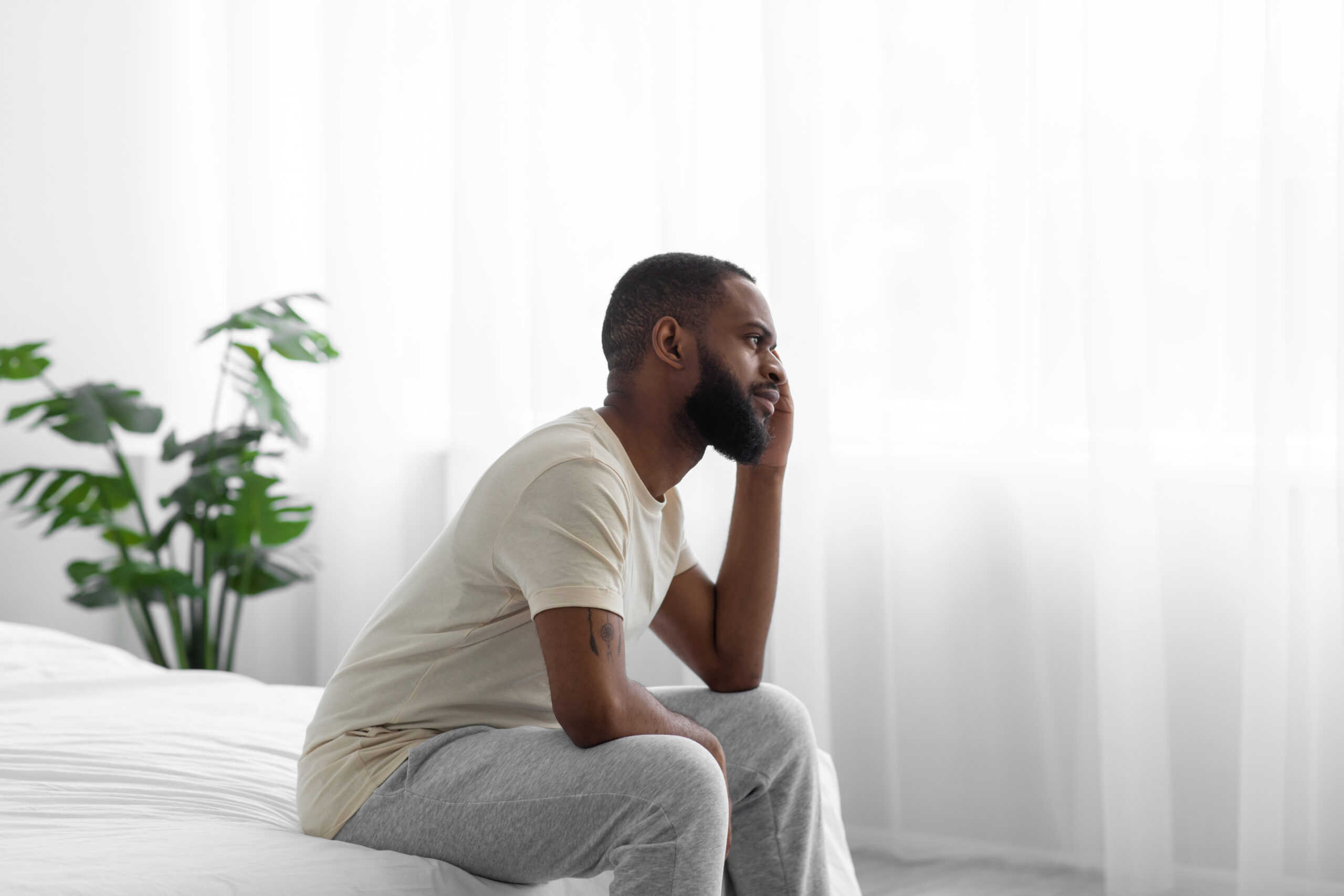Men’s Mental Health Matters: Breaking the Silence and the Stigma
For generations, men have been quietly suffering under the weight of an unspoken expectation: that strength is defined by silence, stoicism and self-reliance. While these values are deeply rooted in many cultures, they have also contributed to a dangerous neglect of men’s emotional well-being. In recent years, mental health awareness has grown rapidly, but one critical area continues to lag behind: men’s mental health.
The stigma surrounding emotional expression in men is not just a social issue; it is a public health crisis. Suicide remains one of the leading causes of death among men under the age of 45 in many countries, including South Africa and the United Kingdom. This sobering statistic is not simply the result of individual struggle, it reflects a broader societal failure to create space for men to talk, be vulnerable and seek help. If we are to change this, we must commit to breaking the stigma, fostering open dialogue and ensuring that mental health support for men is accessible, relevant and free of judgement.
Why Is There a Stigma around Men’s Mental Health?
The stigma in men’s mental health can be traced back to cultural norms surrounding masculinity. From a young age, boys are taught to suppress emotions, avoid vulnerability and “man up” in the face of pain or distress. This emotional repression is often reinforced through family dynamics, peer groups, media representations and even workplace environments.
At the heart of this stigma lies a persistent myth: that acknowledging mental or emotional struggles makes a man weak. This harmful belief silences men and fosters a culture of shame around seeking help. Addressing mental health myths like these is critical to dismantling the barriers that keep men from accessing the care they need.
How Can We Encourage Men to Talk about Their Mental Health?
Encouraging men to engage in mental health conversation starts with creating environments where they feel safe and supported. This does not necessarily mean forcing vulnerable conversations, but rather cultivating spaces where openness is modelled, normalised and met with empathy – not judgement.
Men often respond better to indirect or activity-based communication, especially in early stages. A casual chat during a walk, while working on a project or over a meal may feel less confrontational than a formal sit-down. The key is to listen without trying to immediately fix the problem and to affirm that seeking support is not a weakness, but a form of strength.
Workplaces, sports clubs and community organisations also have a role to play. By integrating mental health awareness into traditionally masculine spaces, we challenge stereotypes and open doors to more inclusive conversations.
What Are Common Signs of Mental Health Issues in Men?
Men may experience the same mental health conditions as women, such as depression, anxiety or post-traumatic stress disorder, but their symptoms often manifest differently. Instead of sadness or tears, men might display irritability, anger, emotional withdrawal or risk-taking behaviours. Others may use alcohol or drugs to mask distress.
Physical symptoms like headaches, digestive issues, chronic pain or fatigue can also signal underlying mental health concerns. Importantly, many men don’t recognise these signs as mental health-related, which can lead to underdiagnosis and prolonged suffering.
How Does Societal Pressure Impact Men’s Mental Well-Being?
Societal expectations play a significant role in shaping men’s emotional well-being. From the pressure to be the sole provider to the demand for constant stoicism and success, men are often burdened with unrealistic ideals. These pressures can result in chronic stress, burnout, emotional detachment and in some cases, destructive coping mechanisms.
Social media has compounded these pressures by offering idealised images of male success and happiness. Men who fall short of these images may experience feelings of inadequacy or isolation. Without tools to process these emotions, they may internalise failure or withdraw from relationships and responsibilities.
Are Mental Health Issues More Likely to Go Undiagnosed in Men?
Yes. Due to both internalised stigma and the way symptoms manifest, mental health issues are more likely to go undiagnosed in men. Many men avoid discussing their mental state with friends, family or healthcare providers out of fear of being judged or misunderstood.
Doctors may also unintentionally overlook signs of depression or anxiety in men, particularly if they present through physical complaints or irritability. This underscores the need for better education among healthcare professionals about gender-specific symptoms, and the importance of routine mental health screening for men.
Mental Health in the African Context: Breaking Deeply Rooted Silences
In many African communities, mental health is still a sensitive and often misunderstood topic. Historically, emotional distress has been viewed through a cultural lens that may interpret it as spiritual imbalance, social disconnection or even personal weakness. Rather than seeking psychological support, individuals – especially men – might turn to traditional practices, religious counsel or suffer in silence, fearing shame or ostracism. While cultural practices and communal support can be valuable, the lack of open dialogue around mental illness often leads to isolation and untreated conditions.
For men, who are expected to be protectors, providers and pillars of strength, expressing vulnerability can feel like a betrayal of their social role. This makes breaking the stigma around men’s mental health within African contexts both crucial and complex. Creating culturally informed mental health awareness that respects tradition while introducing inclusive support structures is essential to ensuring that African men feel safe, seen and supported on their mental health journeys.
What Resources Are Available for Men Seeking Mental Health Support?
Fortunately, mental health support for men is more available than ever before – though still underutilised due to stigma and lack of awareness. In African countries and globally, there is a range of services that cater to men’s specific needs:
Counselling and therapy: Many therapists now offer online sessions, making mental health care more accessible and discreet. Some specialise in men’s issues and masculinity, offering targeted strategies for emotional resilience.
Men’s support groups: Peer-led forums, both online and in person, offer non-judgemental spaces where men can share experiences and support one another.
Helplines and crisis centres: Organisations such as the South African Depression and Anxiety Group (SADAG) provide immediate, anonymous support and referrals.
It’s important that men know these options exist and that accessing them is not a sign of failure but one of courage and self-respect.
How Can Family and Friends Support a Man Struggling with Mental Health?
Support from loved ones can be pivotal in improving men’s mental health. The first step is creating a judgement-free space where the man in your life feels seen and heard. Avoid platitudes like “snap out of it” or “you just need to toughen up.” Instead, validate their feelings and let them know you’re available without pressuring them to talk.
Small actions like checking in regularly, offering to accompany them to appointments or even sharing your own mental health journey can help break down barriers. Be patient: opening up takes time, and the goal is not to force confession but to build trust.
Encourage self-care through exercise, sleep, healthy eating and hobbies that foster connection or creativity. Sometimes, practical help, like assisting with admin or childcare, can alleviate overwhelming stress and allow space for healing.
What Role Does Masculinity Play in Mental Health Stigma?
Masculinity, as traditionally defined, has often been incompatible with emotional openness. Traits like self-control, dominance, competitiveness and invulnerability are celebrated, while vulnerability, fear or sadness are seen as feminine or weak.
This cultural blueprint not only suppresses men’s emotional expression but actively punishes it. Men who deviate from these norms may be ridiculed, marginalised or labelled as unstable. As a result, many internalise the belief that seeking help is shameful.
To shift this, we must redefine masculinity. True strength includes emotional literacy, empathy and the courage to confront pain. Media, education and role models must all contribute to breaking the stigma by showcasing men who are both strong and emotionally expressive.
Is Therapy Effective for Men?
Absolutely. Therapy is effective for men, especially when tailored to their communication style and concerns. Cognitive behavioural therapy (CBT), acceptance and commitment therapy (ACT) and solution-focused approaches often resonate with men who prefer structured, goal-oriented methods.
Therapists who understand the impact of gender norms can help men unlearn harmful beliefs and develop healthier coping strategies. Therapy also offers a confidential space to process past trauma, current stressors and relationship challenges.
For some men, group therapy or peer-based models are more appealing, especially when they see themselves reflected in others’ experiences. What matters most is finding the right fit – someone who meets the individual where they are, without judgement.
What Are Some First Steps for Men to Take if They’re Struggling Mentally?
Taking the first step is often the hardest – but also the most transformative. If you’re a man struggling with your mental health, consider the following:
- Acknowledge it: Admitting you’re not okay is not a weakness; it’s the beginning of healing.
- Talk to someone: This could be a friend, partner, colleague or therapist. You don’t have to have the perfect words, just start.
- Get informed: Learn about common mental health conditions, symptoms and treatments. Knowledge reduces fear.
- Avoid numbing: Alcohol, drugs or overworking only mask the issue. Focus on solutions, not distractions.
- Move your body: Exercise is proven to boost mood, reduce anxiety and improve sleep.
- Reach out for professional help: Book a session with a GP or counsellor. Even one appointment can offer direction and relief.
Conclusion
Men’s mental health matters. The silence that surrounds it is not a reflection of disinterest but of centuries of social conditioning. The time has come to shift this narrative, to raise mental health awareness and to ensure that no man feels ashamed for seeking help.
By addressing mental health myths, challenging traditional masculinity and fostering compassionate conversations, we can create a world where men thrive emotionally as well as physically. Whether you’re a man struggling in silence or someone who loves one, the message is clear: you’re not alone. Help is available. Healing is possible. And speaking up is one of the bravest things you can do.
If you believe that you or a man in your life could benefit from speaking to a professional about men’s mental health, contact a Lenmed general practitioner or psychologist today.
For more information, please contact:
Discipline: Gynaecologist, Obstetrician
Hospital: Beira Private Hospital
Telephone: +258 845 021 970
Dr M Sebei
Discipline: Psychiatrist
Hospital: Randfontein Private Hospital
Telephone: +27 87 087 2766
Dr M Gonzalez
Discipline: Family Physician
Hospital: Bokamoso Private Hospital
Telephone: +267 369 4222














